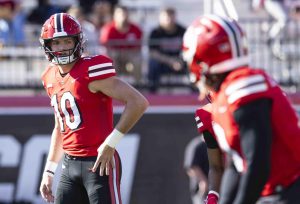Adviser: Prospective career earnings secondary
November 15, 2011
With a struggling economy, many WKU students may worry whether the major they have chosen will lead to a job after graduation.
A report released recently by the Wall Street Journal highlights the average national earnings of each college major along with the 2010 unemployment percentage for the respective majors.
The most popular majors at WKU are elementary education, nursing, biology and interdisciplinary studies, according to the 2011 Fact Book.
According to the WSJ report, nursing has an average median income of $60,000 and an unemployment rate of just 2.2 percent. Nursing is the fourth most popular major nationwide.
Another popular major at WKU, elementary education, doesn’t fair as well in average median earnings with an income of just $40,000, but the unemployment rate is comparable at 3.6 percent. Elementary education is the eighth most popular major nationwide.
Denise Garner, an academic advisor in the School of Teacher Education, said she doesn’t meet many students who worry about finding a career once school is over and that the unemployment rate for teachers is something that comes in “cycles.”
“I just think it’s part of the times and it tends to fluctuate,” she said.
The state of Kentucky unemployment rate remains high at an average of 9.7 percent, according the U.S. Bureau of Labor Statistics, with the national average being 9 percent.
Gordon Emslie, provost and vice president for Academic Affairs, said the university does not push students to pursue certain majors. Rather, WKU’s goal is to expose students to different subjects so they can become “life-long learners” and be able to adapt to changing careers, Emslie said.
“A lot of students will pursue careers in majors we do not even offer,” he said. “The societal demand for a degree will change.”
Kevin Thomas, director of the Academic Advising and Retention Center, said when the center advises students, counselors try to help student choose a major that they will ultimately enjoy.
“We don’t talk as much about the career aspect of it,” he said. “A lot of the time the conversation is, ‘What are you going to do with that?’ and the student thinks about that themselves. The student ultimately makes the best decision for them.”
Thomas and Emslie both said students should talk to faculty in their department and people in the fields their majors lead to to talk about employment options.
“We’re just trying to help the student make the best decision as possible,” Thomas said. “And if that means a career with lots of money that’s a bonus, but if not we just want them to do what they want.”












